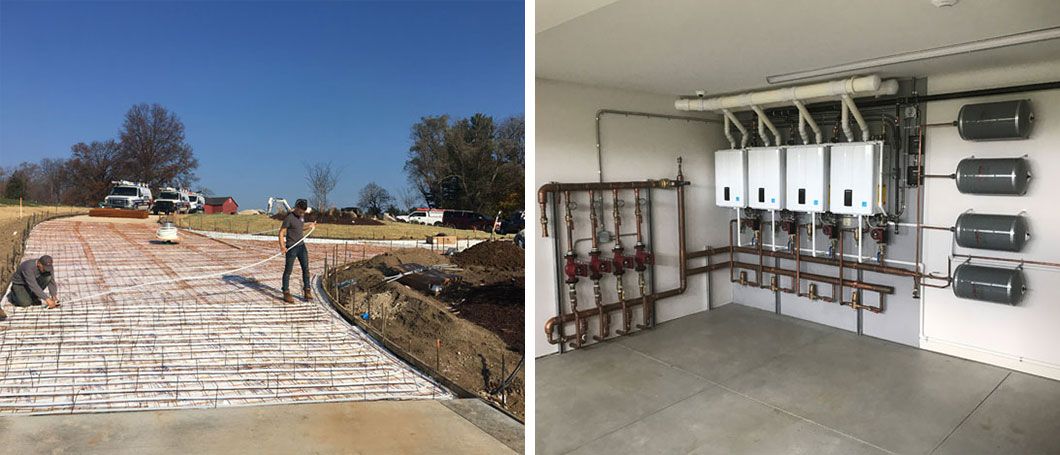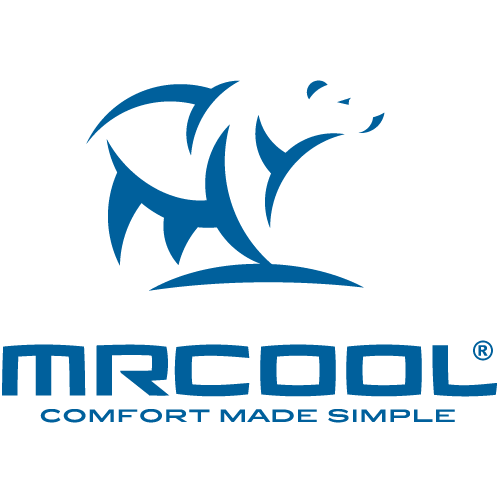Refrigerant Leak Detection Services - Plainfield IL
Author: Eagle Air Heating & Cooling
When your air conditioner or heat pump starts losing efficiency, blowing warm air, or making strange hissing noises, a refrigerant leak might be the hidden culprit. At Eagle Air Heating and Cooling in Plainfield, IL, we specialize in advanced refrigerant leak detection and repair services that restore your HVAC system’s performance and keep your home comfortable year-round.
In this article, we’ll explore the importance of refrigerant leak detection, the signs and risks of leaks, our expert diagnostic methods, and why Eagle Air is the trusted HVAC contractor for homeowners and businesses across the Plainfield area.
What Is Refrigerant and Why Does It Matter?
Refrigerant is the lifeblood of your air conditioning system or heat pump. It’s a chemical compound that cycles through your system, absorbing heat from inside your home and releasing it outdoors, thereby cooling your indoor air. Without the right amount of refrigerant, your system cannot function properly.
Contrary to popular belief, refrigerant is not consumed like fuel. It circulates in a closed loop, and if your system is low on refrigerant, it typically means there’s a leak somewhere in the coils, connections, or components.
Left unchecked, a refrigerant leak can cause a cascade of problems: reduced cooling performance, higher energy bills, frozen evaporator coils, and even long-term damage to your compressor — which can be one of the most expensive parts to replace.

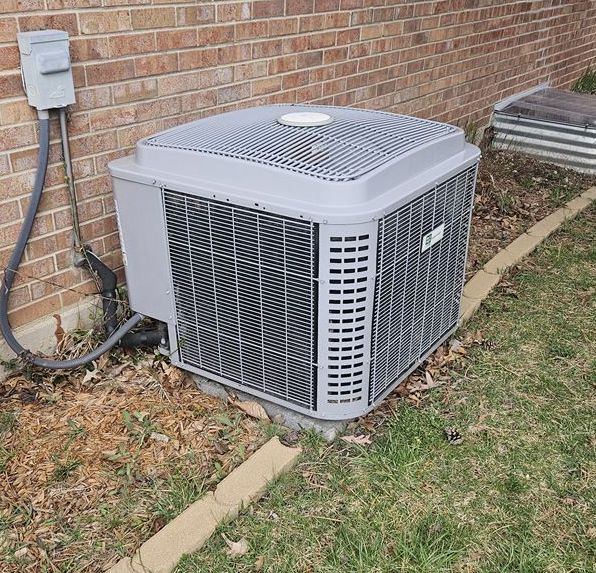
Signs You Might Have a Refrigerant Leak
Recognizing a refrigerant leak early can save you money and prevent major system breakdowns. Here are common signs that might indicate a refrigerant leak in your HVAC system:
- Loss of cooling power – If your AC runs but the air coming out of the vents feels warm or less cold than usual, refrigerant loss could be the cause.
- Hissing or bubbling sounds – These noises often indicate refrigerant escaping from a leak in the system.
- Ice buildup on evaporator coils – Low refrigerant levels cause the coils to get too cold and freeze, which further hinders performance.
- Longer cooling cycles – When your system has to work overtime to maintain the desired temperature, it could be due to a refrigerant shortage.
- Higher energy bills – A leaking system becomes inefficient, consuming more energy to achieve the same comfort level.
- Unpleasant odors – Some refrigerants can emit a chemical smell when leaking.
If you notice any of these symptoms, it’s time to call in the professionals.
Why Refrigerant Leak Detection Requires Professional Expertise
Refrigerant leaks are notoriously difficult to detect with the naked eye. They may occur in hard-to-reach areas, like inside walls, crawlspaces, or within the condenser or evaporator coils. Detecting and repairing them properly requires specialized tools, training, and experience.
At Eagle Air Heating and Cooling, our technicians are EPA-certified and trained in the latest diagnostic techniques. We utilize a combination of electronic leak detectors, UV dye testing, pressure testing, and soap bubble methods to pinpoint even the most elusive leaks with precision.
Attempting to recharge a leaking system without fixing the leak is not only inefficient—it’s also illegal in many cases, due to environmental regulations. Our approach ensures compliance with safety standards and protects your HVAC investment for the long term.
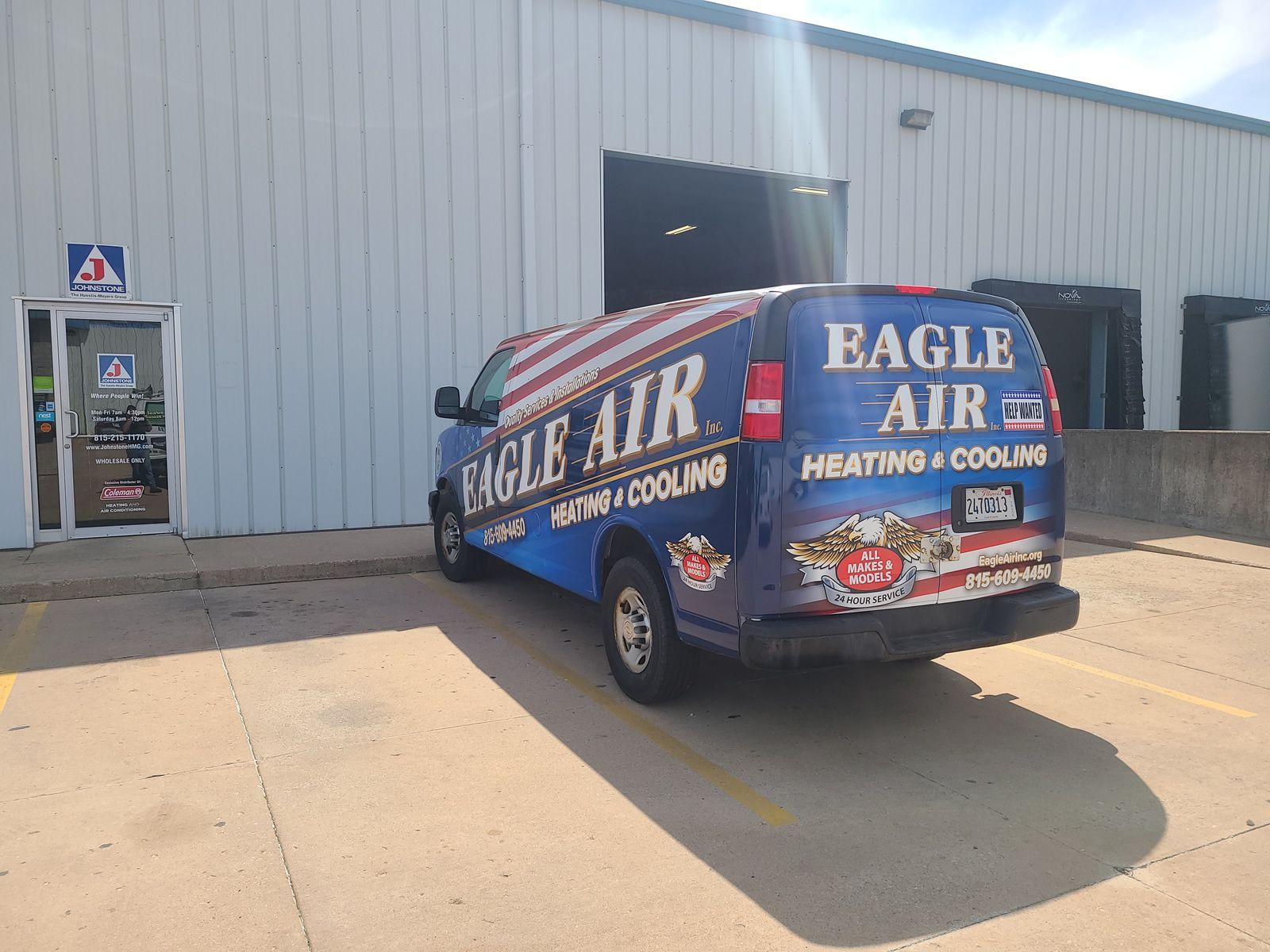
Our Step-by-Step Refrigerant Leak Detection Process
At Eagle Air, we take a systematic approach to refrigerant leak detection that ensures accuracy, transparency, and effective solutions. Here’s how our process works:
1. Initial Inspection and System Assessment
We begin by gathering information about your system’s performance, checking refrigerant pressure levels, and looking for visible signs of leaks or damage. This helps us identify whether a leak is likely and where to focus our testing.
2. Precision Leak Detection
Using industry-leading tools, we inspect key components like the evaporator coil, condenser coil, refrigerant lines, and solder joints. Depending on the system and situation, we may use:
- Electronic leak detectors – Highly sensitive tools that detect even small amounts of escaping refrigerant.
- UV dye testing – A fluorescent dye is added to the system; when it leaks out, it glows under UV light, showing the leak’s location.
- Nitrogen pressure testing – Pressurizing the system with nitrogen helps identify weak spots or holes when bubbles or pressure loss occur.
- Soap solution tests – Simple but effective, this method can reveal leaks by bubbling at the escape point.
3. Leak Location Documentation
Once a leak is found, we document the location and severity, offering you a clear explanation of the issue along with repair options.
4. Professional Repair and Recharge
We don’t just patch leaks—we repair them properly. This may involve brazing copper lines, replacing damaged coils, tightening loose fittings, or even recommending coil replacement if damage is extensive. Once the leak is sealed, we recharge the system with the proper amount and type of refrigerant and test the system for performance.
5. Post-Repair Testing
After repairs and recharge, we perform a final round of leak testing and system diagnostics to ensure your system is sealed and operating efficiently.
The Dangers of Ignoring Refrigerant Leaks
Failing to address a refrigerant leak can lead to serious consequences, both for your HVAC system and your household environment. Here’s why it’s important to act fast:
- Compressor failure – Running an air conditioner with low refrigerant stresses the compressor, potentially causing burnout.
- Higher energy costs – Leaky systems consume more electricity while delivering less comfort.
- Environmental impact – Many refrigerants are greenhouse gases that contribute to ozone depletion or global warming when released into the atmosphere.
- Health hazards – In rare cases, refrigerant leaks in enclosed spaces can displace oxygen or cause respiratory irritation.

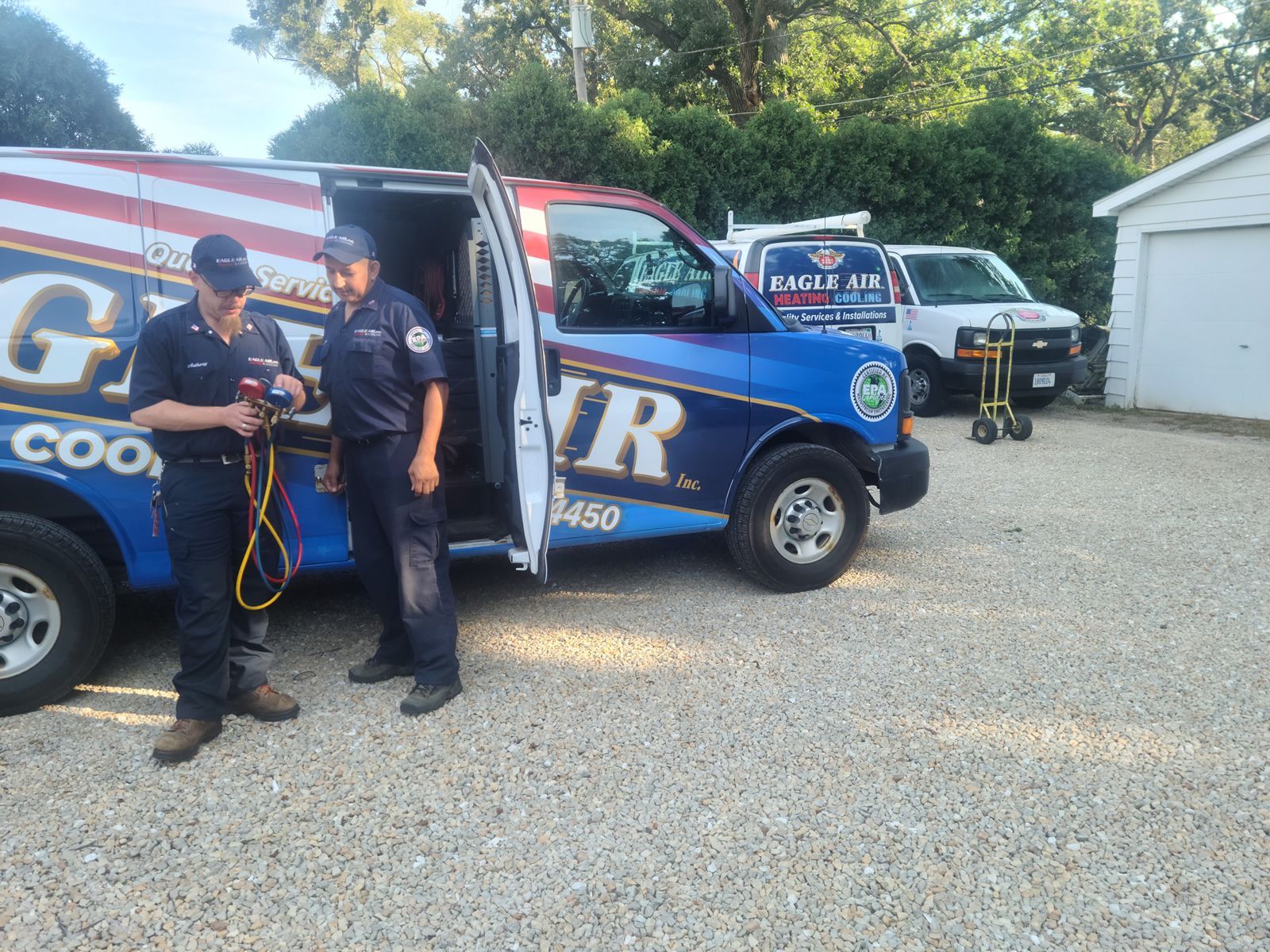
Why Choose Eagle Air Heating and Cooling in Plainfield, IL?
When it comes to refrigerant leak detection and repair, Eagle Air stands out from the rest. Here’s what makes us the top choice for homeowners and businesses in Plainfield and surrounding areas:
✅ Experienced HVAC Professionals
Our team is trained, certified, and highly skilled in refrigerant diagnostics and repairs. We’ve served hundreds of satisfied customers across Will and Kendall Counties.
✅ State-of-the-Art Equipment
We invest in the latest leak detection technology to deliver accurate and fast results—saving you time, stress, and money.
✅ Transparent, Honest Service
We believe in clear communication and honest pricing. You’ll receive a detailed diagnosis, upfront estimates, and options tailored to your needs and budget.
✅ Local Expertise
As a locally owned and operated HVAC contractor in Plainfield, we understand the unique climate challenges of Northern Illinois—and how to keep your home comfortable through every season.
✅ Comprehensive HVAC Solutions
Beyond leak detection, we offer full-service HVAC support, including AC installation, furnace repairs, radiant floor heating, forced air zoning, attic ventilation, and much more.
Preventing Future Refrigerant Leaks
Once a leak is repaired, we help you protect your investment with ongoing maintenance and system checkups. Regular inspections, cleaning, and tune-ups can prevent new leaks from forming and extend your system’s life.
Our AC Pro Tune-Up Service, for example, includes refrigerant pressure checks, coil cleaning, and a full performance evaluation—ideal for spotting potential problems before they become costly repairs.

Serving Plainfield, IL and Surrounding Communities
Eagle Air Heating and Cooling proudly serves homeowners and businesses in:
- Plainfield
- Naperville
- Joliet
- Oswego
- Romeoville
- Shorewood
- Bolingbrook
- And surrounding areas
If you suspect a refrigerant leak or just want peace of mind before summer hits, don’t wait. Call the experts at Eagle Air for reliable, fast, and affordable HVAC solutions.






